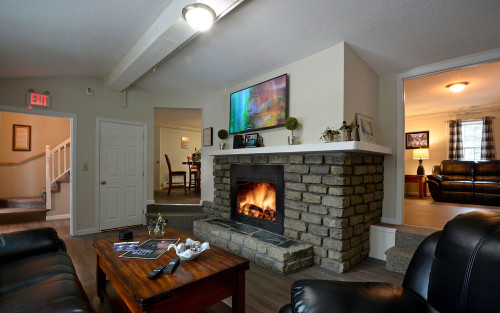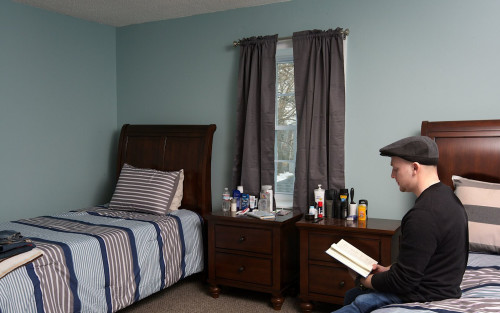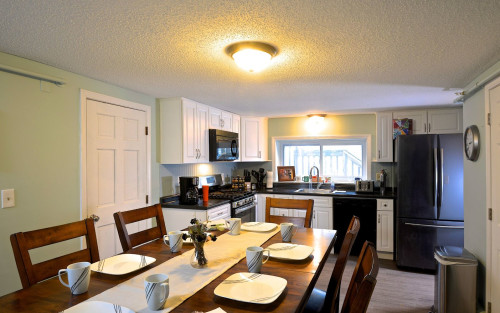





Riverbend Zack's House
Treatment Focus
This center treats substance use disorders and co-occurring mental health conditions. Your treatment plan addresses each condition at once with personalized, compassionate care for comprehensive healing.
Primary Level of Care
Transitional housing designed to support individuals recovering from substance use disorders offering a safe, supportive and structured environment for practicing long-term sobriety, while reintegrating back into daily living.
Claimed
Recovery.com has connected directly with this treatment provider to validate the information in their profile.
Treatment Focus
This center treats substance use disorders and co-occurring mental health conditions. Your treatment plan addresses each condition at once with personalized, compassionate care for comprehensive healing.
Primary Level of Care
Transitional housing designed to support individuals recovering from substance use disorders offering a safe, supportive and structured environment for practicing long-term sobriety, while reintegrating back into daily living.
Provider's Policy
Lowell House strives to provide accessible and affordable addiction services.
Riverbend Zack's House
Riverbend Zack's House
About Riverbend Zack's House
Zack’s House is a transitional housing program supporting young men ages 18-35 in recovery overcoming substance use. Participants entering the program will have completed detox and been in recovery for 3-6 months. As part of a supportive community, clients receive case management, recovery coaching, clinical consultation as needed, and participate in weekly house meetings with staff and residents. Participants work with recovery coaches to formulate individualized, trauma-informed action plans for future treatment and relapse prevention. Cost for Zack’s House is $600 monthly for a double room and $800 for a single room.
History and Goals
Zack’s House is named after Zachary Gys, a Lowell resident who died of drug overdose in 2013. His family and friends partnered with Lowell House to found Zack’s House as transitional housing to help young men facing similar substance use concerns. Zack’s House aims to bridge the gap between residential recovery environments and independent living, providing support to help set up participants for long-term sobriety.
Non-Profit
Zack’s House is part of Lowell House Incorporated, a non-profit 501(c)(3) organization. Lowell House receives funding from a combination of the Commonwealth of Massachusetts, MassHealth Insurance, client fees, grants, and fundraising.
Center Overview
Treatment Focus
This center treats substance use disorders and co-occurring mental health conditions. Your treatment plan addresses each condition at once with personalized, compassionate care for comprehensive healing.
Insurance Accepted
Pricing and Program Length
Estimated Center Costs
The cost listed here ($600-$800 per month), is an estimate of program cost. Center price can vary based on program and length of stay. Contact the center for more information. Recovery.com strives for price transparency so you can make an informed decision.
Levels of Care






Your Care Options
Specializations
Alcohol
Using alcohol as a coping mechanism, or drinking excessively throughout the week, signals an alcohol use disorder.
Drug Addiction
Drug addiction is the excessive and repetitive use of substances, despite harmful consequences to a person's life, health, and relationships.
Young Adults
Emerging adults ages 18-25 receive treatment catered to the unique challenges of early adulthood, like college, risky behaviors, and vocational struggles.
Who We Treat
Young Adults
Emerging adults ages 18-25 receive treatment catered to the unique challenges of early adulthood, like college, risky behaviors, and vocational struggles.
Approaches
Evidence-Based
A combination of scientifically rooted therapies and treatments make up evidence-based care, defined by their measured and proven results.
Individual Treatment
Individual care meets the needs of each patient, using personalized treatment to provide them the most relevant care and greatest chance of success.
Gender-Specific
Separate treatment for men or women can create strong peer connections and remove barriers related to trauma, shame, and gender-specific nuances.
Therapies
1-on-1 Counseling
Patient and therapist meet 1-on-1 to work through difficult emotions and behavioral challenges in a personal, private setting.
Life Skills
Teaching life skills like cooking, cleaning, clear communication, and even basic math provides a strong foundation for continued recovery.
Relapse Prevention Counseling
Relapse prevention counselors teach patients to recognize the signs of relapse and reduce their risk.
Substances We Treat
Alcohol
Using alcohol as a coping mechanism, or drinking excessively throughout the week, signals an alcohol use disorder.
Co-Occurring Disorders
A person with multiple mental health diagnoses, such as addiction and depression, has co-occurring disorders also called dual diagnosis.
Drug Addiction
Drug addiction is the excessive and repetitive use of substances, despite harmful consequences to a person's life, health, and relationships.





